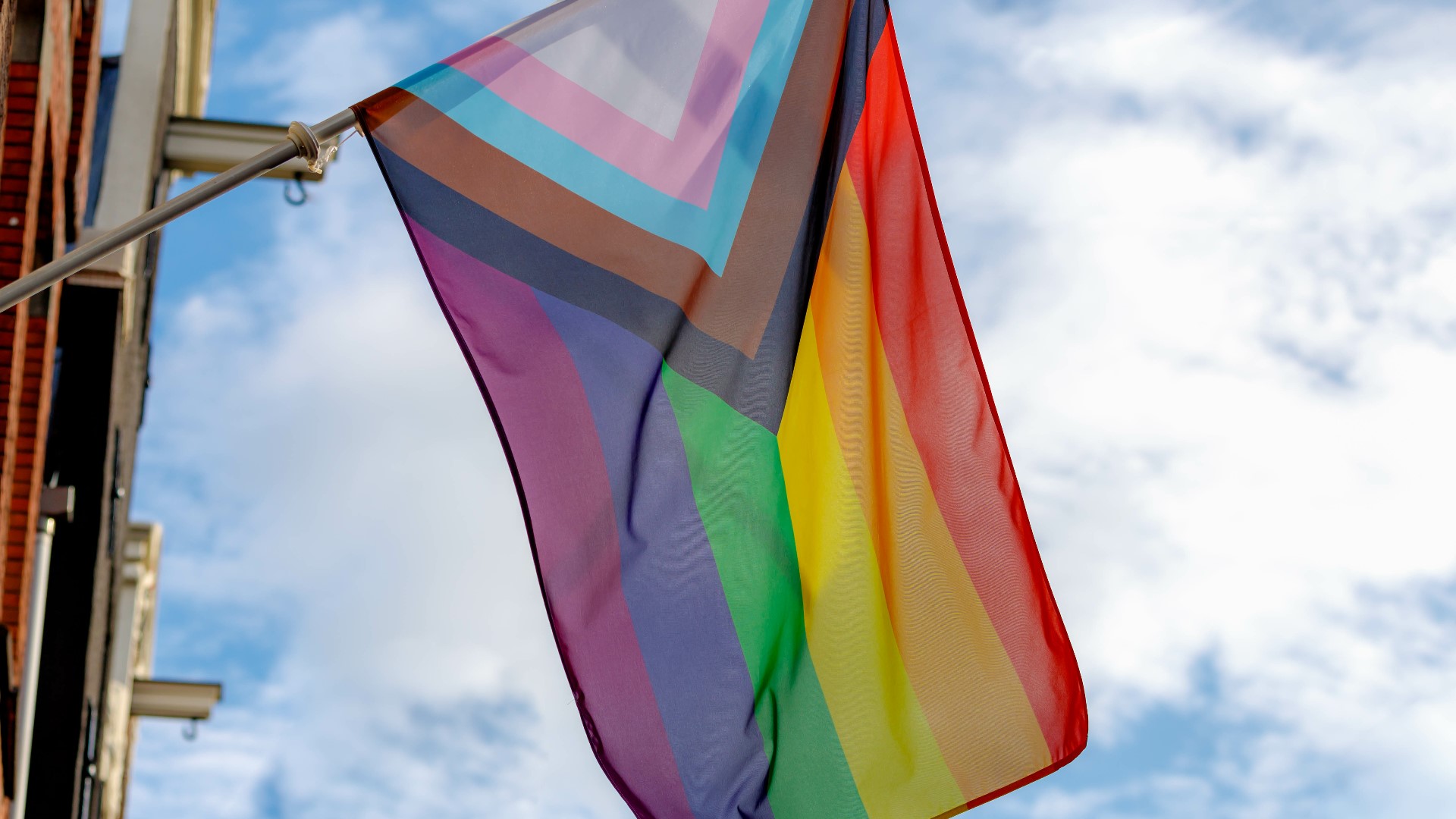WASHINGTON — When Tessa Jelani was 22, she had nowhere to call home.
An unaccepting father meant she couldn’t go home to family. A group of people she thought were her friends had kicked her out on the street. Some nights, the shelters in Washington, D.C. would fill up and she would have nowhere to go.
Tessa is a proud transgender woman. She started to socially transition when she was still on the street; she had changed her name and her pronouns, but was still presenting as male. As she puts it, when you have to worry about finding a place to sleep, it’s hard to make space for finding yourself.
“I was battling my identity because I thought I was just a very feminine male,” Tessa said. “So I'm battling my own self, while also trying to take care of my surroundings. It got to a point where I just couldn't take it no more. And I hit so low that I almost tried to take my life.”
It was her dog, Twinkie, who kept Tessa going. And more importantly, he kept her alive.
“He is literally like an angel," Tessa said. "He protected me when I didn't have no one else to protect me…if it wasn't for him I think I'd be in someone's casket right now. Every time I got rejected I said ‘I just gotta keep going for me and Twinkie.’ Because he's keeping me here. He's the reason I'm here and I need to make sure he has a good home regardless.”
Tessa and Twinkie had been in and out of housing assistance all around the city. Some were helpful, but all the beds would fill up early in the night. Some touted trans-inclusivity, but turned out to harbor an unsafe environment.
Then, Tessa found SMYAL.
Washington, D.C. is a queer city
The nation’s capital has a larger LGBTQ+ population share than any other state. In 2019, it was almost 10%. But that population share skyrockets in the city’s unhoused population, with approximately 40% of unhoused youth (ages 18-24) in the city identifing as LGBTQ+.
There are a lot of circumstances that could be causing this prominence of homelessness for LGBTQ+ youth. Many young queer and trans people are rejected by their families, kicked out of their homes and forced to find somewhere else to live. Many still face housing and employment discrimination. Some leave the foster care system without the tools to live on their own.
But local organizations Covenant House/SHINE and SMYAL have set their sights on helping LGBTQ+ unhoused youth get back on their feet, despite what feels like a nationwide push to roll back their rights.
"Anti-LGBTQ bills are being introduced and passed across the country. That bleeds into our area," SMYAL's Hancie Stokes said. "We've taken steps forward towards justice, equity, and inclusion, we're starting to see some of that rollback right now. And it has real-world consequences on our young people's lives."
Monroe Poston is the residential coordinator for SHINE, a new program supporting LGBTQ+ youth under the nonprofit Covenant House umbrella. A trans woman herself, Monroe is deeply invested in her work.
“They find themselves on the street, they find themselves cast out, abandoned, abused, and often running from very violent situations,” she said. “I remember how difficult it was to navigate the feelings that I had personally about who I am and who I wanted to be in the world, and then the fear of sharing that with the people that I love the most, and them to turn around and disrespect me, abuse me, neglect me and hurt me mentally, physically, emotionally. It's extremely painful.”
SMYAL, which stands for Supporting and Mentoring Youth Advocates and Leaders, currently houses more than 60 youth across different programs in DC. Some live in shared apartments in buildings run by SMYAL to foster a safe environment. Some receive grants to pay for their own apartments. SMYAL’s newest program partners with the DC Department of Health to provide residents with housing and HIV prevention.
“All of our residents live here completely rent free and they are connected to case management,” said Keith Pollard, SMYAL’s Deputy Director of Housing. “That case manager connects them to the resources that are necessary to them. So mental health services, SNAP, employment, education and things like that.”
Tessa stayed in SMYAL’s transitional housing for 18 months. Once she had a roof over her head, she was able to focus on finding herself and living authentically as a woman.
“It gave me some peace not only knowing that I have a place to go every single day, but it gave me room to now start figuring out who I am, it gave me time to take my mental health seriously,” she said.
Her advice for young people seeking assistance from groups like SMYAL: demand the resources you need and take advantage of the opportunities.
“There are spaces for us. Own your space, own who you are,” she urged. “Make the naysayers into haters because guess what, that's just gonna boost you even more. I know it surely did that for me.”
If you or someone you know is in need of assistance, reach out to the DC Department of Human Services.

